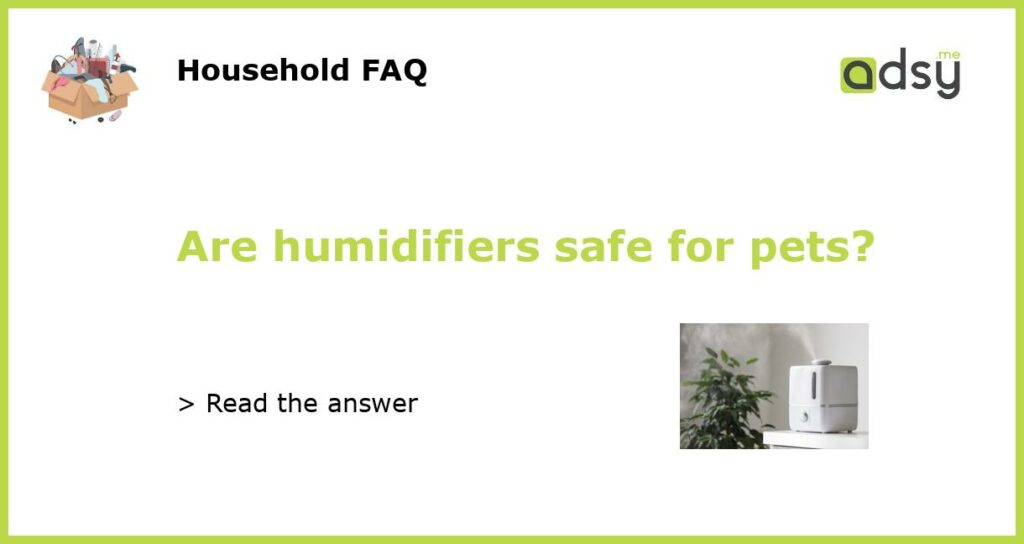Understanding the Role of Humidifiers in Pet’s Health
If you have a furry friend at home, you are always concerned about how to keep them healthy and happy. One of the things that you might be considering is the use of a humidifier to increase the humidity level in your home. But, are humidifiers safe for pets?
What is a Humidifier?
A humidifier is a device that increases the humidity levels in an indoor environment. It either releases cool or warm mist, which is then spread in the air in the form of moisture. Humidifiers are commonly used in dry regions where the air can get quite dry and affect a person’s health and skin. Similarly, humidifiers can have several benefits for pets as well.
The Benefits of Using Humidifiers for Pets
A humidifier can moisturize a pet’s skin, fur, and coat, which helps to prevent dryness, flaking, and itching. In addition, humidifiers can help with pet allergies and respiratory problems. They can prevent dry throat and nasal passages, which can reduce the risk of infections and various respiratory diseases.
Safety Concerns About Humidifiers and Pets
Humidifiers are safe for pets if you use them correctly. However, it is essential to keep in mind that humidifiers can also pose risks to pets if not cared for properly. Overuse of a humidifier can increase the humidity level to a point where it can cause mold and bacteria growth. This growth can lead to respiratory problems, infections, and other health concerns for both humans and pets.
Precautions When Using Humidifiers with Pets
There are some precautions you can take to make sure that using a humidifier is safe for your pets. Firstly, always read the manufacturer’s instructions carefully to ensure that you use it correctly. Secondly, keep the humidifier clean and change the water daily to prevent bacteria and mold growth. Thirdly, do not allow your pet to drink the water in the humidifier, and keep it out of their reach to prevent injuries. Lastly, always monitor your pet for any signs of discomfort or respiratory issues, and contact your vet if necessary.






